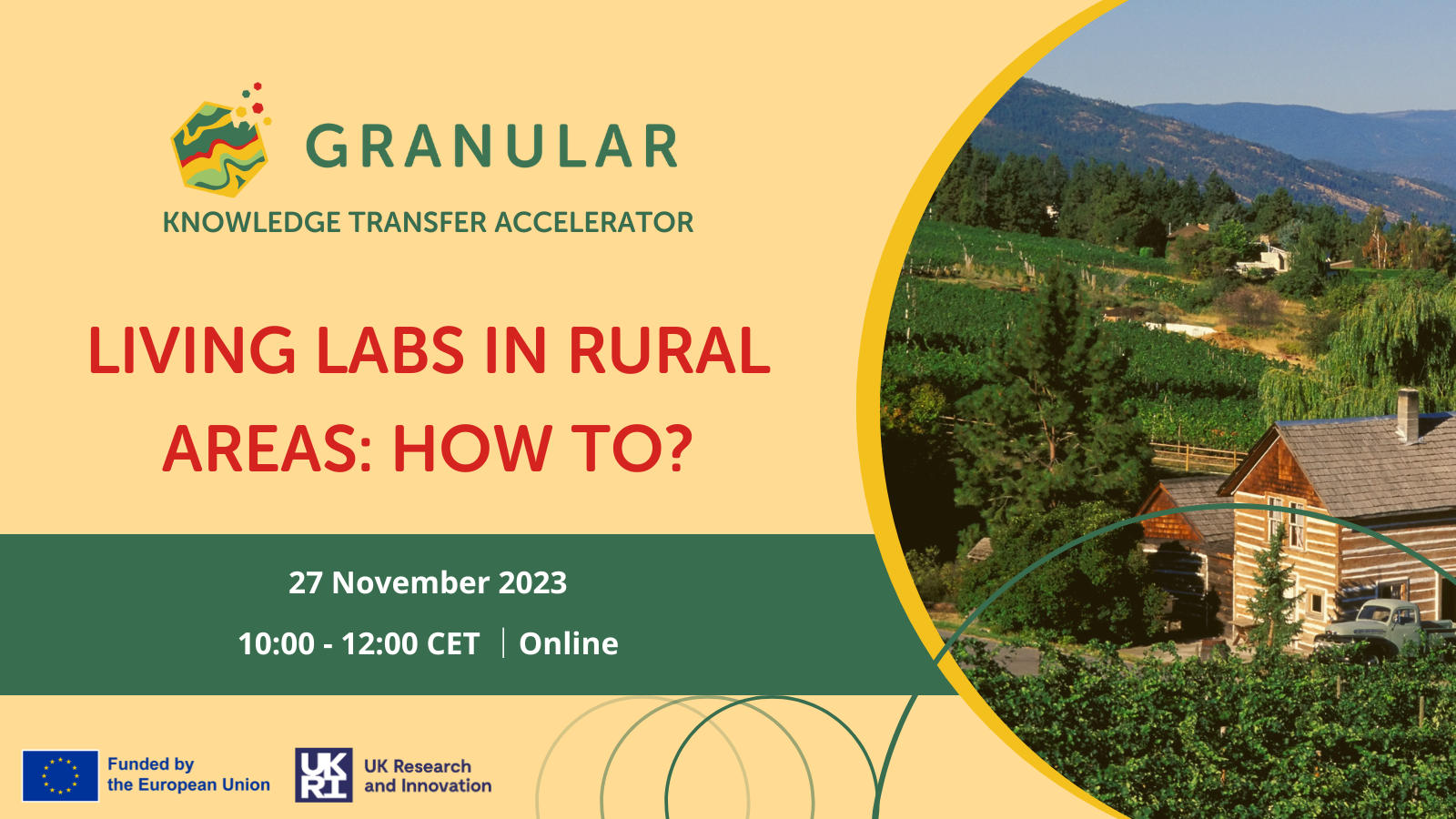Knowledge Transfer Accelerator | 1st activity
Living Labs are open innovation networks created in collaboration with local actors, whose goal is to co-develop and co-test novel solutions that meet real-life needs. The establishment and implementation of Living Labs are associated with several benefits, beyond rural areas. These range from engaging local actors to developing new ideas and piloting solutions, promoting stakeholder ownership and uptake of such solutions.
Across Europe, several European rural projects have recognised the added value of Living Labs carrying out action research and testing novel solutions. Among these, the Horizon Europe project GRANULAR has developed 7 Living Labs and 9 Replication Labs in various rural areas across Europe to jointly define data collection techniques and indicators to enhance rural policies at the local level.
In this webinar, different fascinating rural Living Labs from GRANULAR and other European projects will be featured. You’ll hear about their successes and difficulties. Selected speakers will share their lessons learnt from different Living Labs at various stages of development, including early, mature, and growth.
Presentations:
- GRANULAR: Better Data for Better Rural Policies and the Role of Living Labs – Tristan Berchoux, Mediterranean Agronomic Institute of Montpellier (IAMM) & GRANULAR Coordinator
- GRANULAR Living Lab in Italy – Marco Ricci, Val di Cecina Rural District/ GreenGea snc
- RUSTIK Living Lab in Austria, Daria Ernst, Federal Institute of Agricultural Economics, Rural and Mountain Research (BAB)
- SHERPA Multi-Actor Platforms – Ellen Bulten, Wageningen University & Research
- ROBUST Living Lab’s experience – Marina Knickel, Konrad Lorenz Institute for Evolution and Cognition Research
- Beyond European projects: Tips and Tricks for Living Labs – Giulia Campodonico, European Network of Living Labs (ENoLL)
- GRANULAR KTA webinar: Conclusions & next steps – Carla Lostrangio, European Association for Innovation in Local Development (AEIDL)
